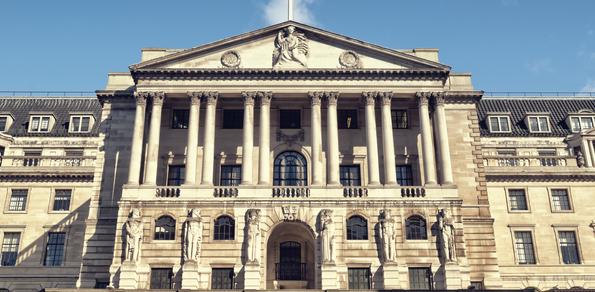U.K inflation may be slightly higher this year and next than the Bank of England forecast last month, due to the threat of higher oil prices and weak productivity growth, BoE chief economist Spencer Dale remarked today. The Bank needs to keep a close eye on whether the long-term unemployed dropped out of the job market, opening the door to higher wage inflation when growth improved.
His statements are laying the ground work for the BoE to put an end to quantitative easing when the current round is completed in May. Quantitative easing, much like austerity, have long term effects that cannot be guaranteed. Both need to be applied carefully.
Bank of England Governor King started a second round of gilt purchases in October, when the euro zone debt crisis appeared to be out of control. At present, the situation has stabilized and the UK economy appears to be slowly recovering after contracting in the last three months of 2011.
Today, Britain’s Office for Budget Responsibility announced that it will increase its economic forecast slightly higher when the U.K. government presents its budget this week, the Financial Times reported.
Annual consumer price inflation in Britain slowed to 3.4% in February, slowing from a 3.6% annual pace in January, the Office for National Statistics reported Tuesday. On a monthly basis, consumer inflation rose 0.6% from January.
In February, when the central bank approved a further, 50 billion pound, round of QE on top of the 75 billion pounds authorized in October – the BoE’s central forecast was for inflation to drop below its 2% target by the end of the year.
“My own view is that the chances of inflation being above or below 2% by the end of this year and into 2013 are somewhat more balanced,” Dale said in a speech at the University of Aberystwyth.
[quote]One obvious worry … is the possibility that tensions within the Middle East could escalate and put further upward pressure on oil prices.[/quote]
“We’re not out of the woods yet,” he said. “The sharp fall in inflation over the past six months or so reflects the effect of the price level increases we saw around this time last year … dropping out of the twelve-month inflation rate.”
The focus of Dale’s speech was on what he predicted would be a “slow and challenging” rebalancing of the British economy after the financial crisis. British businesses would need to export more, get used to more expensive bank borrowing costs particularly in the construction sector and rely less on demand from households and the government, Dale said.
Dale concluded saying that the UK economy was looking better and that he could see a path to recovery.





